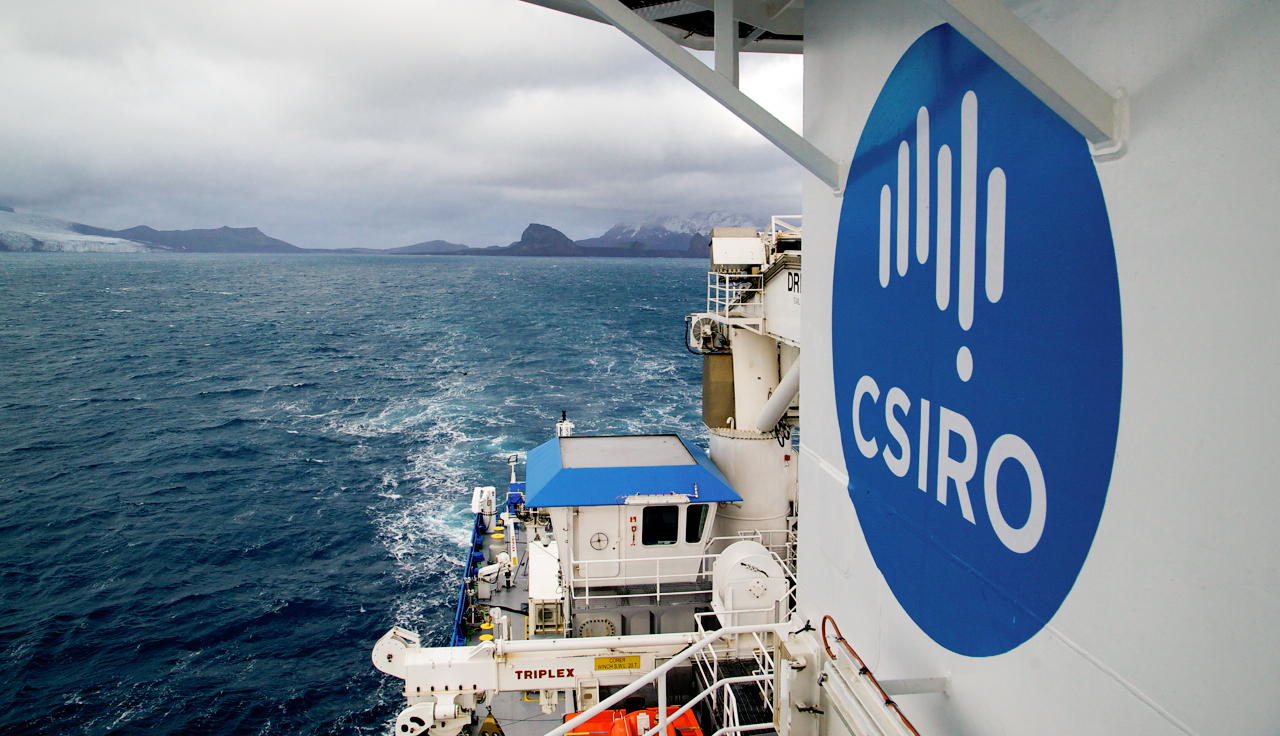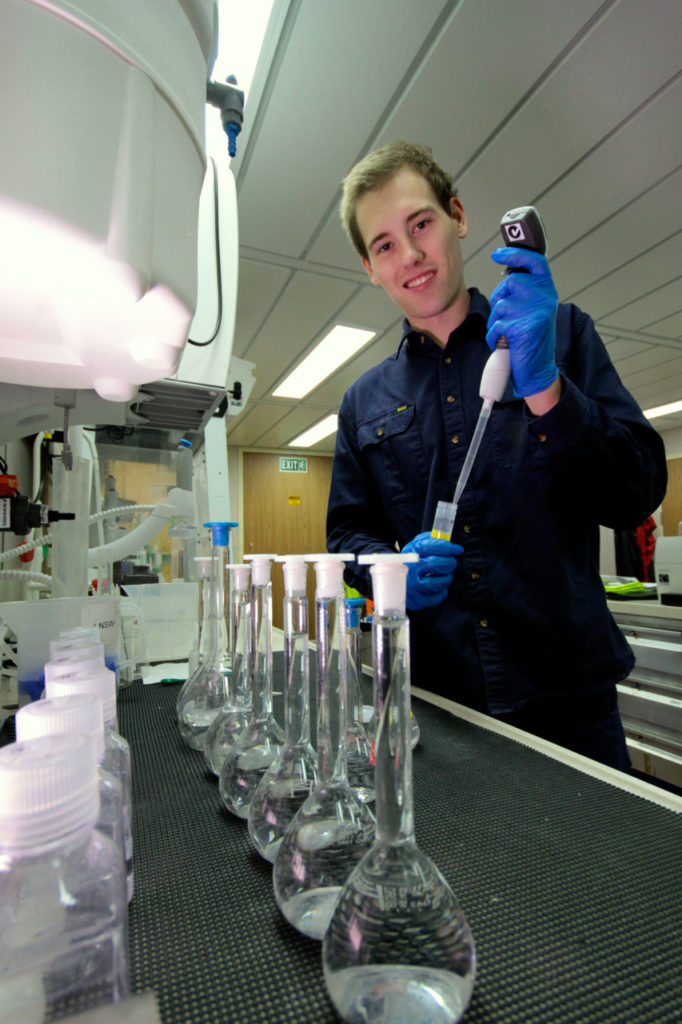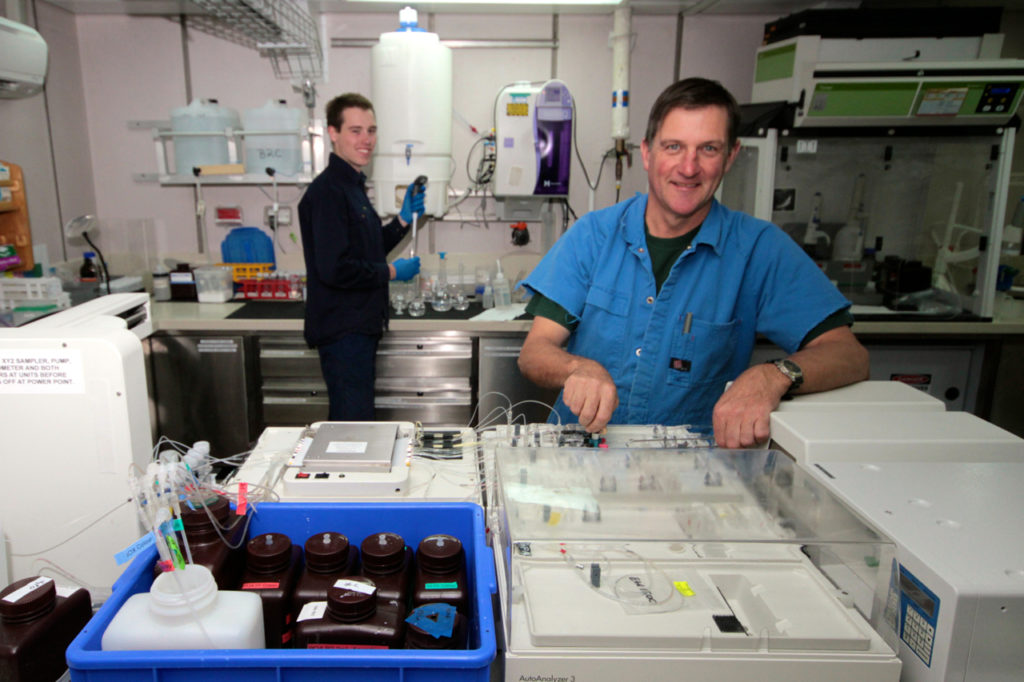Kendall Sherrin shares what life aboard RV Investigator is like for a young scientist

RV Investigator hard at work near Heard and McDonald Islands
By Kendall Sherrin, Research Technician aboard RV Investigator voyage IN2016_V01
Kendall Sherrin shares what life aboard RV Investigator is like for a young scientist

Kendall in the Hydrochemistry Lab
It was only late November last year that I started as a Hydrochemist at CSIRO, with my primary role providing support for the scientific minds of the world aboard the RV Investigator.
I’m certainly humbled and grateful for the opportunity the job has given me, especially when it involves a trip to one of the most awe inspiring and remote locations of the world.
My first voyage
It wasn’t long after starting at CSIRO that I was asked if I could join this voyage. Or course I agreed, but with such short notice everything seemed to happen very quickly, and I didn’t really have any time to truly think ahead about what to expect once I was on board.
I was definitely taken aback when I first stepped onto the Investigator, unsure whether or not I would enjoy the experience or be able to keep up with the amount of work ahead, but because there’s such an amazing team of scientists and crew to provide support, it’s been a fantastic learning experience.
Science on the high seas
The voyage has been full of amazing sights, with every moment tinged with the feeling of being on the cusp of the next exciting science discovery.
We’ve been hard at work in the Hydrochemistry lab analysing many samples of seawater for their salinity and dissolved oxygen and nutrient levels.
Each of these analyses requires meticulous attention to detail to be able to achieve the most accurate result possible. We determine the levels of dissolved oxygen through a titration, which is based off of the classic Winkler method.
To determine the salinity, which we use as a reference point for the density of the seawater, we use a specialised flow cell that measures the conductivity.
And to analyse the nutrients, we mix reagents with the sample seawater to form a colour that can be measured spectrophotometrically, where the intensity of colour formed is relative to the concentration. On this voyage, we’re analysing the levels of Phosphate, Silicate, Nitrite and Nitrate.
If that seems like a lot to grasp, I agree!

Kendall and Mark in the Hydrochemistry Lab
All of this has been quite a learning curve for me as I’ve just come straight out of university. These types of analyses are so specialised that don’t teach them at uni, but my colleague Mark has been invaluable helping me get up to speed on what needed to be done as quickly as possible.
He’s been a Hydrochemist for a much longer than me, and gained his experience through developing and refining these techniques. There’s a lot of attention to detail and subtleties involved with this type of analytical chemistry, especially for the accuracy we’re aiming for, but fortunately I was able to quickly learn and adapt to get the results the scientists were looking for.
I can’t wait for my next voyage
This trip so far has been an incredible experience, especially being a part of a world class scientific investigation. I’m definitely looking forward to my future opportunities aboard the Investigator, and can’t wait for the journeys ahead.


25th February 2016 at 10:48 am
A DELIGHTFUL REPORT, FROM AN ENTHUSIAST WHO IS ENJOYING HIS WORK.